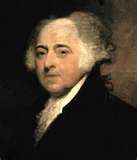His official obit from his long-time base in the Software Engineering Institute at Carnegie Mellon University (http://tinyurl.com/2vffpgt) is headed: Watts Humphrey Succeeded in Changing the World of Software Engineering. "Changing the world of anything is an outrageous commitment," Humphrey said in an interview in early 2010, discussing his decision to come to the SEI. "I knew I couldn't do it alone, and I wanted to be in an environment where I could work with folks and do that."
As the pioneering innovator behind several important software development processes, Watts Humphrey more than met his promise to change the World of software engineering. His contributions go well beyond methodology and the many awards and accolades he received. For decades, his work inspired software engineers and his colleagues and friends worldwide. (Jared Cohon, president, Carnegie Mellon University.)But Watts' legacy is not just for us techie types -- in fact, what made him so successful in "changing the world" was his strategic leadership, that is the ongoing focus of this blog. Watts embodied the qualities that any leader in any field can adopt.
Vision: After years of pioneering work at IBM as a leader of a mammoth, global software engineering group, Watts saw with great clarity what needed to be done to move developing software solutions to business problems from a black art to an engineering discipline. He believed in the power of harnessing technology in a disciplined way.
Translate vision to reality: Watts was not one of these leaders who float along at 30,000 feet on his visionary quest but whose feet never touch the ground. He could turn his vision into practical processes that gave individuals a clear road map to daily practice.
Inspiration: Because Watts' vision was so clear and because he could translate it into reality, he inspired generations of folks in the software field by making us want to implement his ideas. His style was easy going but compelling. I still have handwritten notes from the many times I heard him speak and lead seminars -- and I still pull them out and use them in my work.
Caring: At the end of any keynote, presenters like Watts are always mobbed by enthusiastic people. Some busy themselves with packing up their notes and computer, distractedly hand out a few cards, and slip away. Others believe they have a captive audience to continue pontificating or shamelessly trying to drum up consulting gigs. Watts was different. He talked with each person, no matter how new to the field and naive, as if he or she were the only person in the room. He shared. He was warm and encouraging. No matter how long the line, he was patient and engaged.
Commitment: His commitment to changing the world of software engineering was authentic and not grandiose. Many in the field believe they have the keys to better software solutions and don't mind telling you how great they are, how wrong others are, and how following them will get you to the promised land of zero defects. Watts simply told stories about how real people had succeeded in putting processes in place to improve results. His commitment was to the people that toil away in Cube Land day after day, trying to support their organizations with technology; the Dilberts of the world. Watts’ commitment was not to aggrandizing himself.
Great Management: Long before the Gallup organization published First Break All the Rules: What the World's Greatest Managers Do Differently (FBAR,) Watts wrote a little volume called Managing Technical Professionals. In it he lays out how to adapt and adopt our understanding of human psychology to bring out great performance in people. FBAR simply confirmed with extensive data what Watts had learned from his experience as a manager and leader. Whether you manage technical or non-technical people, it is still one of the best handbooks for day-to-day working with people. (Of course FBAR is a necessary resource too.)
So whether you're a techie who was touched directly or indirectly by Watts and his breakthroughs or whether you're just trying to be a good manager and leader, spend a little time investigating and learning from this giant...he did change the world for the better...and the world is a little diminished today with his passing. Luckily we can all access and learn from his legacy which will be with us a long time.
Farewell, Watts. We will miss you and we will never forget you and what you have done for us.
* * * * *
(C) Rebecca Staton-Reinstein, President, Advantage Leadership, Inc.
Author: Conventional Wisdom: How Today's Leaders Plan, Perform, and Progress Like the Founding Fathers

























